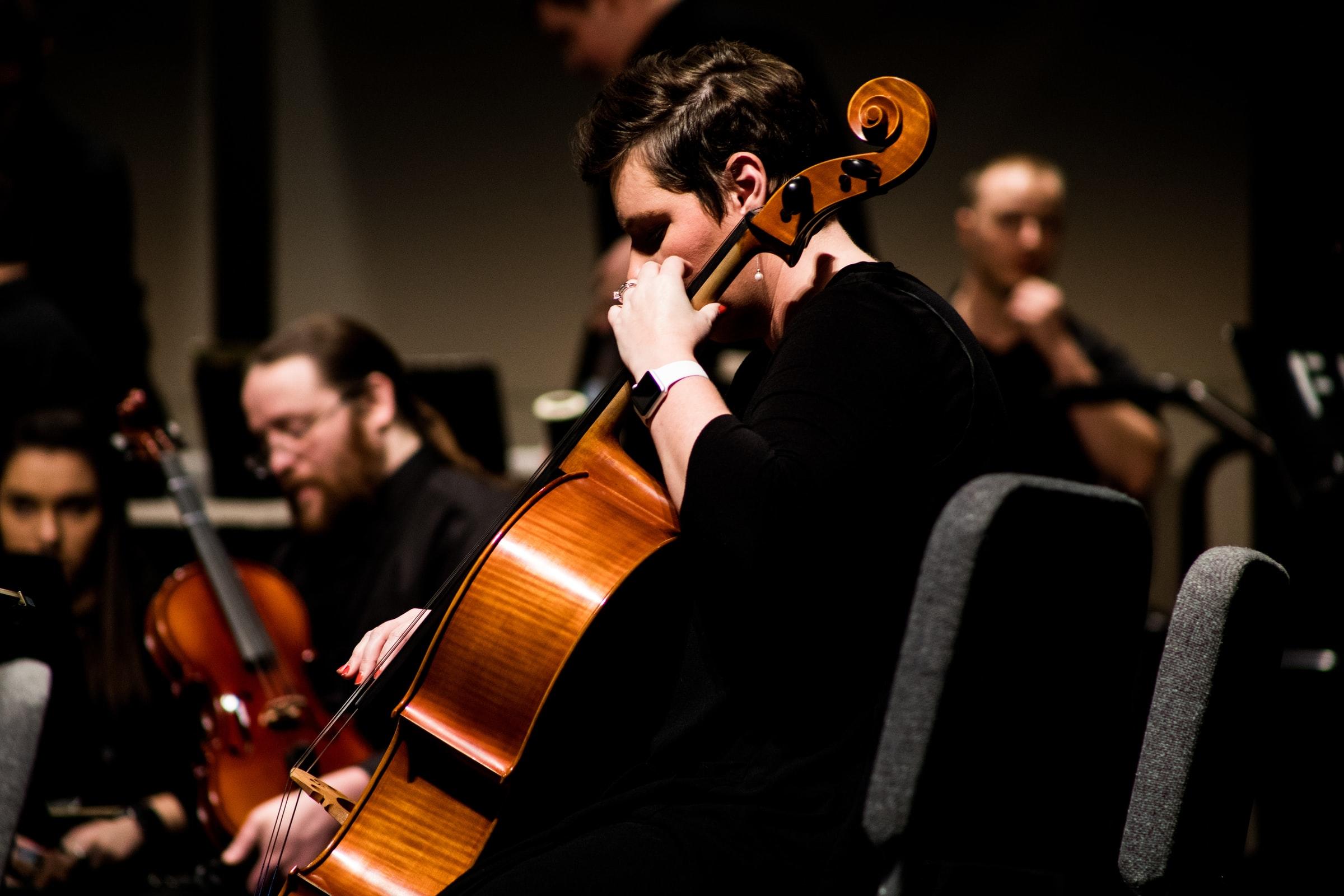“People haven’t always been there for me but music always has.” -Taylor Swift
When people fail us, and we feel alone, there is something that we can always depend on, and that is music. Existing since the beginning of time, music can turn a frown upside down and make us feel that life is worth living.
The world's most celebrated artists have found their place by singing or playing music in their favourite genre.
While listening to music provides us with the escape that we desire, to better understand the world of music, some have learned a musical instrument, become singers/songwriters, or have studied music at a more profound level at uni.
One of the best ways to learn more about music is studying musicology. But, what is musicology? Without further delay, in today's article, we'll answer that question and discover the three main branches of musicology.
Find out where you can get singing lessons Edinburgh here.
What is Musicology?

Before starting to discuss all of the branches of musicology and everything they cover, it's worth mentioning that it's essential to first define musicology.
So, what is musicology? In the simplest of terms, musicology can be described as a method of music analysis that touches on important aspects of music, such as its culture and history.
Therefore, it's worth stating that musicology is more of an academic discipline than it is a practice of musical techniques on an instrument. For instance, musicologists, the term is given to experts in musicology, don't solely study and listen to rhythms and melodies but also learn about the history of a specific music genre and how it has changed through the years. Musical instruments and their origins and social impact are also examined during musicology courses.
Musicology goes hand in hand with sociology since it examines the impact music has had on social groups throughout history and why certain people react more positively to some genres of music than others.
We shall determine the primary sectors of musicology a litter further in this article.
Now that we've determined the definition of musicology, what are some of the skills needed to excel at musicology? Consult the list below to find out more:
- A Passion for Music: since musicology involves getting into the nitty and gritty aspects of music theory, you have to adore music entirely with a whole heart.
- A Love of History: because a lot of musicology explores past events and periods in time, it's essential to enjoy studying history.
Now that we've touched a little bit on musicology let's consider the three main branches in the following subheading.

What are the Main Branches of Musicology?

Since the term musicology means "the study of music", it encompasses all genres of music from all cultures from the beginning of time. Therefore, you could say that musicology is a somewhat layered subject with so many musical aspects to sift through and examine carefully; that's why it has been organised into three main branches.
Without further delay, we'll take a closer look at the three primary sections of musicology and what can be learned from each one. Please note that the sections of musicology that we have mentioned are in no particular order.
Systemic Musicology
Used as an umbrella term for musicologists in the Western World to describe many subdisciplines of musicology that have to do with music in general rather than specific manifestations of music and musicology.
It's worth mentioning that systemic musicology overlaps with a music conservatory education.
When students take the time to analyse systemic musicology, they learn new things such as music theory, acoustics, and sound studies of musical instruments.
Within the sector of systemic musicology, multiple subdisciplines can be analysed and reviewed, such as the following:
- Music psychology,
- Music sociology,
- Philosophy of music,
- Music acoustics,
- Cognitive neuroscience of music,
- Computer sciences of music.
All of the previously mentioned subtopics can be studied in further detail to address questions about music in general.
Many significant questions about music are questioned, and students do their best to research and find answers about what they have discovered.
Systemic musicology can be learned as part of university classes when attempting to garner a degree in Music Studies at a further education centre in the UK.
Ethnomusicology
The second branch of musicology that can be learned about is known as ethnomusicology. How's that? Ethnomusicology combines the words "ethnic" and "musicology." It's the study of music from different cultures and lands that are not part of the Western World.
It's worth stating that ethnomusicology analyses the cultural and social aspects of the people who made the music.
Distinct theoretical and methodical approaches are utilised to understand cultural, social, material, cognitive, biological, and additional elements of musical behaviour. While there are many subdisciplines of ethnomusicology, one of them is cognitive musicology. What is cognitive musicology? Cognitive musicology studies the similarities between music and cognitive science.
It's important to state that individuals who are working or studying in ethnomusicology may have experience or understanding of the following disciplines:
- Music,
- Cultural anthropology,
- Folklore,
- Performance studies,
- Dance,
- Cultural studies,
- Gender studies,
- Race or ethnic studies,
- Additional fields of humanities.
Those who obtain a degree in ethnomusicology most often work as educators or researchers.
Historical Musicology
The third and final branch of musicology that we will examine in today's article is historical musicology. But, what is historical musicology? It's an essential aspect of musicology, and it keeps track of the overall history of music.
Most historical musicologists will dedicate their careers to precisely tracing the history of Western Music from European and American cultures. Nonetheless, in recent years, there has been an increased effort to explore the historical traces of music and its origins from other parts of the world, such as South America, Africa, and Asia.
The study of historical musicology is so interesting because researchers explore faraway cultures to see how music from the past has influenced new types of music genres from the area in question.
There you have it, three of the primary branches or parts of musicology. Read the following paragraph to learn about the jobs offered to musicologists.
Find more vocal training here on Superprof.
What Jobs are Available to Musicology Graduates?
Even though learning everything you can know about music might be a passion of yours, it's worth stating that musicology students should be thinking about the potential careers available to them when they graduate.
Since most qualified musicology graduates have received a BSc from a further education centre in the UK, they are hireable across various sectors and fields. Nonetheless, for those who want to stick to the field of music, the following are the most common sectors that seek out musicology experts:
- Academia: the overwhelming amount of musicology graduates tend to find work in the sector of academia as full professors, associate professors, assistant professors, or lecturers. Also, while not at a university, musicology grads may become tutors or music instructors at academies or institutes.
- Libraries: since musicologists have years of experience studying genres of music and when they were released and produced, it's worth stating that libraries often hire a musicology major or two to organise and set up their music collection. The libraries may be associated with music conservatories or universities.
- Publishing: various graduates of musicology may turn to the literary arts and publish articles and books about specific periods of music history. Writers who don't know musicology may consult with those who do.
- Music Schools: often, musicologists are not only familiar with music theory but also playing musical instruments. Therefore, their experience is beneficial for persons running music academies and hunting for musicians to teach classes.
Search job-hunting websites such as LinkedIn, Reed, Monster, etc., to find out more about the various jobs available in the sector of musicology.
How to Learn More About Musicology?

While we have examined that learning more about musicology to become eligible to work in the field requires a university degree or other education training programme, how do everyday people like you and me learn more about musicology as a hobby?
It's important to state that in the past two decades or so, private tutoring has become increasingly popular for persons of all ages due to the quick advancements in technology that have been observed. Learning more about any subject or academic discipline online via videoconferencing platforms is now possible.
Also, it's worth starting at in-person private tuition is possible for various topics.
Therefore, if you're a curious learner who wants to grasp more information about music theory and musicology, there is a private educator out there on tutoring community websites such as Superprof.
The following are some of the primary advantages of hiring a singing coach or music expert on Superprof:
- Affordable tuition for all types of budgets,
- A variety of passionate and experienced tutors,
- A fantastic tutor/student support staff,
- An easy-to-use lesson booking system.
Additionally, most first-time users are sold because the initial lesson with music and singing tutors on Superorof is usually free of charge.
In conclusion, while studying to play a new musical instrument or taking singing lessons, it doesn't hurt to acquire more information about musicology and its various branches.
Find singing lessons Bristol here on Superprof.
Summarise with AI:















